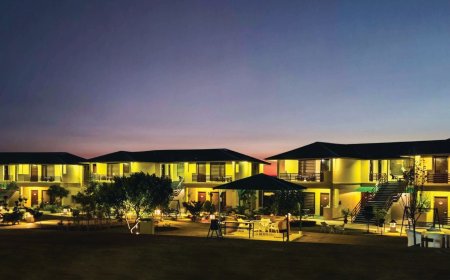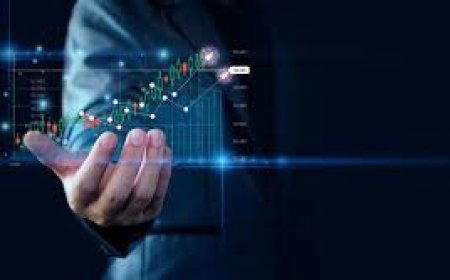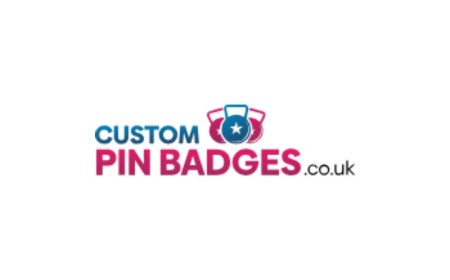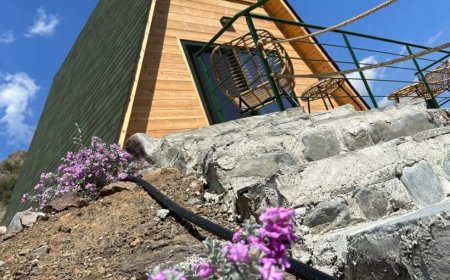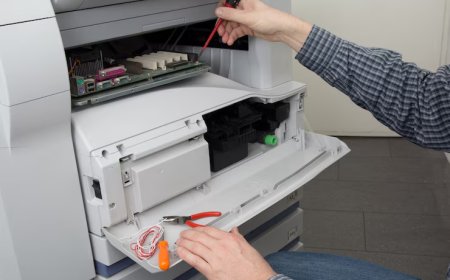Top 10 Washington Libraries
Introduction In an age of information overload, where misinformation spreads faster than facts, the role of trusted libraries has never been more vital. Washington State is home to a rich network of public, academic, and specialized libraries that serve as pillars of knowledge, equity, and civic engagement. These institutions are not merely repositories of books—they are dynamic centers of learnin
Introduction
In an age of information overload, where misinformation spreads faster than facts, the role of trusted libraries has never been more vital. Washington State is home to a rich network of public, academic, and specialized libraries that serve as pillars of knowledge, equity, and civic engagement. These institutions are not merely repositories of booksthey are dynamic centers of learning, digital access, lifelong education, and community connection. What sets the best apart is not just their collections, but their unwavering commitment to accuracy, accessibility, and public trust. This article highlights the top 10 Washington libraries you can trusteach selected for their transparency, service excellence, community impact, and dedication to intellectual freedom. Whether youre a student, researcher, parent, or lifelong learner, these libraries offer reliable resources backed by professional librarianship and decades of public service.
Why Trust Matters
Trust in information sources is no longer a luxuryits a necessity. With algorithms curating content based on engagement rather than truth, and social media amplifying unverified claims, the need for authoritative, vetted knowledge has never been greater. Libraries stand as one of the last remaining institutions designed explicitly to uphold truth, objectivity, and intellectual integrity. Unlike commercial platforms, public libraries operate under ethical codes that prioritize the public good over profit. They are governed by standards set by the American Library Association, including the Library Bill of Rights, which affirms free access to information regardless of origin, viewpoint, or popularity.
In Washington, libraries are publicly funded and accountable to local communities. They undergo regular audits, publish usage statistics, and maintain transparent collection development policies. Their staff are trained professionals with advanced degrees in library science, skilled in evaluating sources, verifying facts, and guiding users through complex information landscapes. A trusted library doesnt just give you answersit teaches you how to find them yourself.
Trust also means inclusivity. These libraries serve all residentsregardless of income, language, immigration status, or technological literacy. They offer free Wi-Fi, multilingual materials, assistive technologies, and outreach programs for seniors, youth, and marginalized groups. In rural areas, mobile libraries bridge geographic gaps. In urban centers, digital labs empower job seekers and entrepreneurs. Trust is built not through advertising, but through consistent, equitable service over generations.
When you rely on a trusted library, youre choosing a source that has been vetted by experts, reviewed by peers, and curated with ethical responsibility. In Washington, this tradition runs deep. The libraries listed here have earned community confidence through decades of service, innovation, and unwavering commitment to truth.
Top 10 Washington Libraries You Can Trust
1. Seattle Public Library
The Seattle Public Library is the largest and most visited public library system in Washington State, serving over 1.5 million residents across 27 branches. Renowned for its modern architecture, digital innovation, and inclusive programming, it consistently ranks among the top urban libraries in the nation. Its central library, designed by Rem Koolhaas, is an architectural landmark and a hub for community engagement. The library offers free access to over 5 million physical and digital items, including e-books, audiobooks, academic journals, genealogy databases, and language learning platforms. Its staff provide expert research assistance in over 100 languages, and its digital portal, Libby and OverDrive, is among the most user-friendly in the country. The library also hosts free workshops on digital literacy, financial planning, and civic engagement. With transparent collection policies, regular community feedback sessions, and a commitment to equity, the Seattle Public Library sets the standard for trust in public information services.
2. King County Library System (KCLS)
King County Library System serves more than 1.4 million residents across 41 branches, making it the largest library system in Washington by geographic coverage. KCLS is celebrated for its seamless integration of technology and community needs. It offers 24/7 online access to over 4.5 million items, including streaming video, research databases, and online courses through platforms like LinkedIn Learning and Gale. Its digital catalog is intuitive and mobile-optimized, and its interlibrary loan system ensures access to rare and specialized materials. KCLS prioritizes equity through its Library for All initiative, which provides free devices, internet hotspots, and tech support to low-income families. The system also partners with local schools, nonprofits, and government agencies to deliver literacy programs, job readiness training, and mental health resources. Its leadership regularly publishes performance metrics and community impact reports, reinforcing its accountability and transparency.
3. Spokane Public Library
Spokane Public Library has earned deep community trust through its consistent investment in neighborhood access and cultural relevance. With 10 branches serving a diverse urban and suburban population, it offers extensive collections in Spanish, Russian, and Native American languages. The librarys Read Together program supports early childhood literacy in underserved neighborhoods, while its Digital Bridge initiative provides free computers and tech coaching to seniors and immigrants. The main library features a dedicated local history archive with over 50,000 photographs, maps, and oral histories documenting the Inland Northwest. Staff are trained in trauma-informed service, ensuring a welcoming environment for all patrons, including those experiencing homelessness. The librarys collection development policy is publicly available and community-driven, with input solicited through regular forums and surveys. Its commitment to intellectual freedom and nonpartisan programming has made it a cornerstone of civic life in Spokane.
4. Pierce County Library System
Pierce County Library System operates 22 branches across a rapidly growing region, serving over 900,000 residents. It stands out for its robust digital infrastructure and strong focus on lifelong learning. The system offers free access to Coursera, Mango Languages, and Ancestry Library Editionall available remotely. Its MakerSpace labs in select branches provide 3D printers, recording studios, and sewing machines for creative projects. The library also partners with local colleges to offer dual-enrollment courses for high school students and hosts regular author talks, science fairs, and citizenship workshops. Pierce Countys collection reflects the regions diversity, with significant holdings in Pacific Islander, Latinx, and Southeast Asian cultures. The librarys annual transparency report details spending, circulation statistics, and program outcomes, reinforcing public confidence. Its mobile library reaches remote communities, ensuring no resident is left without access to trusted information.
5. Tacoma Public Library
Tacoma Public Library is a model of community-centered innovation. Its flagship Central Library, renovated in 2003, is a LEED-certified green building that serves as a cultural anchor for the city. The library offers one of the most comprehensive local history collections in the state, including digitized newspapers, oral histories of Indigenous communities, and archives of Tacomas labor and civil rights movements. Its Tech Hubs provide free coding bootcamps, resume workshops, and cybersecurity training. The library also hosts StoryWalks, outdoor reading installations in parks, and Books Beyond Bars, a program that delivers reading materials to incarcerated individuals. Staff are trained in cultural competency and trauma-informed care, ensuring services are accessible to vulnerable populations. Tacoma Public Librarys collection development is guided by community surveys and equity audits, making it one of the most responsive and trusted institutions in the region.
6. Everett Public Library
Everett Public Library has earned its reputation for excellence through consistent innovation and community responsiveness. Its modern main branch features a dedicated teen center, a childrens innovation lab, and a quiet research wing with access to ProQuest and JSTOR. The librarys Digital Equity Initiative provides free laptops and broadband access to low-income households, while its Immigrant Resource Center offers legal aid referrals, ESL classes, and citizenship prep materials. Everetts collection includes extensive materials on Pacific Northwest environmental history, Indigenous sovereignty, and labor movements. The library regularly hosts public forums on local governance and publishes summaries of its collection decisions online. Its staff are active participants in statewide library associations and contribute to national discussions on intellectual freedom and digital inclusion. Trust is built here not through slogans, but through measurable outcomes and sustained community engagement.
7. Bellingham Public Library
Located in the heart of Whatcom County, Bellingham Public Library is a beacon of intellectual curiosity and environmental stewardship. The librarys collection emphasizes sustainability, Indigenous knowledge, and regional history, with a special archive of Pacific Northwest environmental literature. It offers free access to academic databases, including ScienceDirect and JSTOR, and hosts monthly Science Salons where local researchers present findings to the public. The librarys Book a Librarian service allows patrons to schedule one-on-one research consultationsno appointment too small. Bellingham also leads in accessibility, with sensory-friendly spaces, large-print collections, and ASL interpreters for public events. Its annual Community Listening Tour gathers input directly from residents to shape programming and acquisitions. The librarys commitment to non-commercial, non-partisan resources has made it a trusted source for students, activists, and retirees alike.
8. Olympia Public Library
As the capital citys primary information hub, Olympia Public Library plays a critical role in supporting civic engagement and public policy research. It houses one of the most comprehensive collections of state government documents in Washington, including legislative records, agency reports, and ballot measure histories. The library offers free access to LexisNexis, HeinOnline, and ProQuest Congressional, making it an essential resource for journalists, lawyers, and policy analysts. Its Civic Lab provides workshops on how to read budgets, file public records requests, and attend city council meetings. The library also partners with the State Archives and University of Washington Tacoma to digitize historical materials. Staff are trained in government information literacy and provide expert guidance on navigating complex public data. Its commitment to transparency, nonpartisanship, and civic education makes it one of the most trusted institutions in state government.
9. Yakima Valley Libraries
Yakima Valley Libraries serves a diverse, largely agricultural community with 11 branches and a mobile unit that reaches remote farms and rural neighborhoods. It stands out for its culturally responsive programming and deep ties to the regions Latino, Native American, and immigrant populations. The library offers extensive collections in Spanish and Mixtec, and its Family Learning Center provides bilingual storytimes, homework help, and parenting workshops. Its Digital Navigator program trains residents to use online services for healthcare, education, and employment. The library also maintains a regional archive of agricultural history, including oral histories from farmworkers and records of labor organizing. With transparent funding reports and community advisory boards, Yakima Valley Libraries ensures its services reflect the needs of those it serves. Its trustworthiness stems from decades of showing upliterally and figurativelyfor every resident, no matter their background.
10. University of Washington Libraries
The University of Washington Libraries form one of the most comprehensive academic research systems in the Pacific Northwest. With over 10 million volumes, 1.5 million electronic resources, and 12 specialized librariesincluding the Suzzallo and Allen Librariesit supports research across every discipline. Its digital collections include rare manuscripts, historical newspapers, and government documents dating back to the 1800s. The libraries offer free public access to most of its databases, including PubMed, IEEE Xplore, and JSTOR, making academic knowledge accessible to all residents. The Research Help Desk provides expert guidance from subject-specialist librarians, many of whom hold PhDs in their fields. The UW Libraries are leaders in open access publishing, digital preservation, and data management training. Its commitment to scholarly integrity, intellectual freedom, and equitable access has earned it national recognition. Even non-students can access its physical collections and attend public lectures, making it a vital resource for lifelong learners across Washington.
Comparison Table
| Library System | Branches | Collection Size | Digital Access | Language Support | Special Programs | Community Trust Indicators |
|---|---|---|---|---|---|---|
| Seattle Public Library | 27 | 5+ million | 24/7 online, Libby/OverDrive | 100+ languages | Digital literacy, civic workshops | Transparent policies, equity audits, public forums |
| King County Library System | 41 | 4.5+ million | 24/7, LinkedIn Learning, Gale | 30+ languages | Device lending, Library for All | Annual impact reports, community surveys |
| Spokane Public Library | 10 | 1.8 million | Online databases, mobile app | Spanish, Russian, Native languages | Digital Bridge, local history archive | Trauma-informed staff, public collection policy |
| Pierce County Library System | 22 | 3.2 million | Coursera, Ancestry, Mango | Pacific Islander, Latinx, Southeast Asian | MakerSpace, dual-enrollment courses | Public transparency reports, mobile outreach |
| Tacoma Public Library | 8 | 1.5 million | ProQuest, JSTOR, free Wi-Fi | Spanish, Somali, Vietnamese | Books Beyond Bars, StoryWalks | Equity audits, community listening tours |
| Everett Public Library | 8 | 1.7 million | LexisNexis, LinkedIn Learning | Spanish, Arabic, Russian | Immigrant Resource Center, Tech Hubs | Publicly posted collection decisions |
| Bellingham Public Library | 5 | 800,000 | JSTOR, ScienceDirect, free Wi-Fi | Indigenous languages, Spanish | Science Salons, Book a Librarian | Community listening tours, sensory-friendly spaces |
| Olympia Public Library | 4 | 600,000 | LexisNexis, HeinOnline, ProQuest | English, Spanish | Civic Lab, government documents archive | Nonpartisan policy research, public records support |
| Yakima Valley Libraries | 11 + mobile | 1.2 million | Online databases, mobile hotspot lending | Spanish, Mixtec, Indigenous | Digital Navigator, farmworker archives | Mobile outreach, culturally responsive collections |
| University of Washington Libraries | 12 specialized | 10+ million | Free public access to JSTOR, PubMed, IEEE | English, Spanish, Asian languages | Open access publishing, data management training | Academic integrity, national research leadership |
FAQs
Are Washington libraries free to use?
Yes. All public libraries in Washington offer free access to books, digital resources, Wi-Fi, and most programs. A library card is required for borrowing materials and accessing online databases, but it is free for all residents of the state. Non-residents may obtain a card for a small annual fee, but many servicesincluding research assistance and public eventsare available to everyone regardless of residency.
Can I access academic databases without being a student?
Yes. Many Washington libraries, including the University of Washington Libraries, Seattle Public Library, and King County Library System, provide public access to academic databases such as JSTOR, ProQuest, and ScienceDirect. You do not need to be enrolled in a university to use these resourcesjust have a valid library card.
Do Washington libraries offer help with job searches and resumes?
Absolutely. Nearly every major library system in Washington offers free resume workshops, interview coaching, and access to job search platforms like LinkedIn Learning and Indeed. Staff can help you create professional resumes, prepare for interviews, and navigate online job applications. Many also host employer meetups and career fairs.
Are there resources for children and teens?
Yes. Libraries across Washington offer dedicated childrens and teen spaces with age-appropriate books, STEM kits, coding clubs, homework help, and summer reading programs. Programs like 1000 Books Before Kindergarten and Teen MakerSpace are widely available and designed to foster lifelong learning from an early age.
Do libraries offer materials in languages other than English?
Yes. Libraries in Washington serve a diverse population and maintain extensive collections in Spanish, Russian, Vietnamese, Somali, Mixtec, Arabic, and Indigenous languages. Many also offer language learning software like Mango Languages and provide bilingual staff or interpretation services.
Can I borrow laptops or Wi-Fi hotspots from Washington libraries?
Yes. Many libraries, including King County, Pierce County, and Yakima Valley, offer free lending of laptops, tablets, and Wi-Fi hotspots to help bridge the digital divide. These are available on a first-come, first-served basis and can be checked out for up to three weeks.
How do libraries ensure their collections are trustworthy and unbiased?
Libraries follow professional standards set by the American Library Association, including the Library Bill of Rights. Collection development is guided by peer-reviewed sources, community input, and ethical review. Librarians evaluate materials for accuracy, credibility, and relevance, avoiding bias and commercial influence. Materials are regularly reviewed and updated to reflect current knowledge and diverse perspectives.
Do libraries support research for writers and artists?
Yes. Libraries offer access to specialized databases for literature, art history, and creative writing. Many host writing workshops, author readings, and critique groups. Some, like the Seattle Public Library, even provide free access to Adobe Creative Cloud and music composition software for patrons.
Are libraries still relevant in the digital age?
More than ever. While digital platforms offer convenience, they lack accountability, context, and expertise. Libraries provide curated, verified information, expert guidance, and equitable access. They teach critical thinking skills, protect intellectual freedom, and serve as neutral spaces for civic dialogueall essential in todays information landscape.
How can I support my local library?
You can support your library by using its services, attending events, volunteering, donating books (if accepted), and advocating for public funding. Share your positive experiences, provide feedback on services, and participate in community surveys. Libraries thrive when the community engages with them.
Conclusion
The top 10 Washington libraries profiled here are more than buildings filled with booksthey are living institutions of democracy, equity, and intellectual integrity. Each has earned trust not through marketing campaigns, but through decades of consistent, ethical service. They provide free access to knowledge, empower marginalized voices, and equip residents with the skills to navigate an increasingly complex world. In a time when misinformation threatens public discourse, these libraries stand as beacons of truth, carefully curated by trained professionals who prioritize the public good above all else.
Whether youre seeking academic research, language learning, digital skills, or simply a quiet place to read, these libraries offer reliable, accessible, and inclusive resources. Their commitment to transparency, community input, and intellectual freedom makes them uniquely trustworthy. By choosing to use, support, and advocate for these institutions, you are not just accessing informationyou are upholding the values of an informed, engaged, and just society.
Visit your local library today. Bring a friend. Ask a question. Borrow a book. Youre not just using a serviceyoure participating in a tradition of truth that has shaped Washington for generations.








